Poems worksheets activities for Ages 4-7
10 filtered results
-
From - To
Discover our engaging Poems Worksheets and activities designed for children ages 4 to 7! These interactive resources help young learners explore the rhythm and fun of poetry while enhancing their language skills. Featuring themed poems, illustrations, and vocabulary exercises, our worksheets encourage creativity and self-expression. Ideal for home or classroom, they promote phonemic awareness, comprehension, and critical thinking. Foster a love for poetry as children participate in various activities such as rhyming games, poem recitation, and creative writing prompts. Unlock the joy of learning with our expertly crafted poems worksheets that inspire imagination and nurture budding poets! Explore and print today!


Rhymes in Poems Worksheet
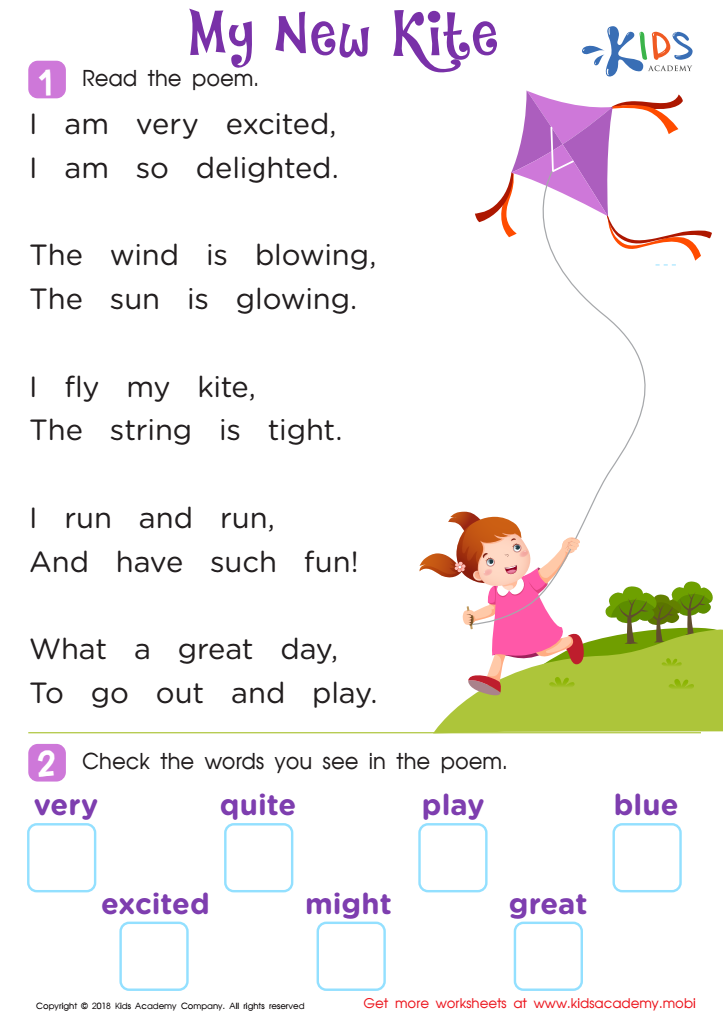

Poem: My New Kite Worksheet


Baa Baa Black Sheep Printable
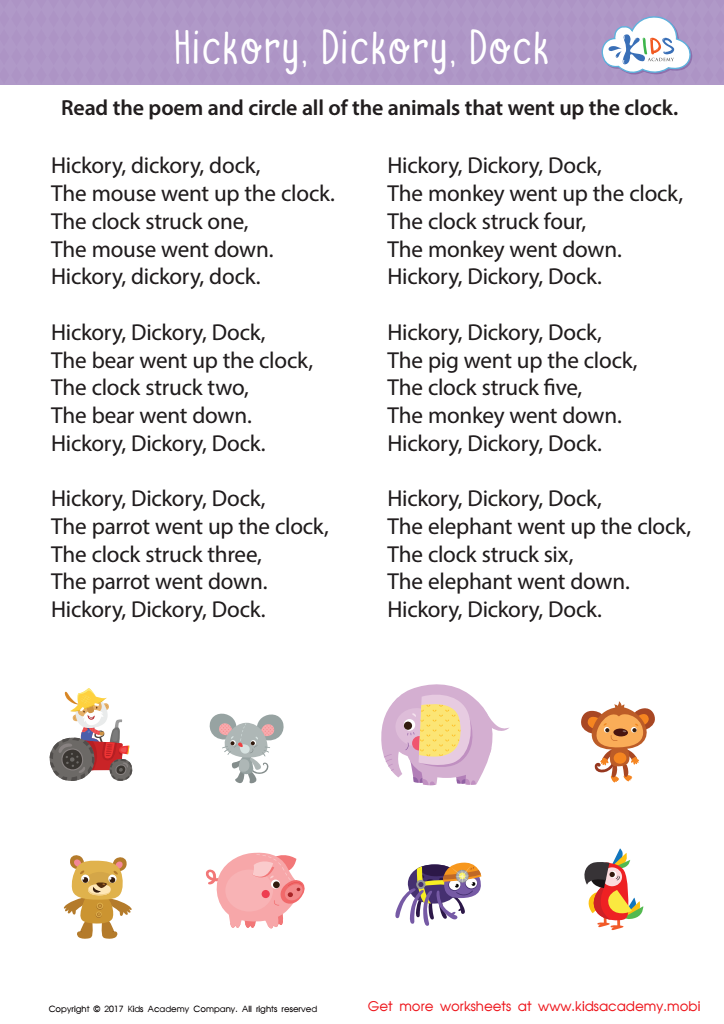

Hickory Dickory Dock Sequencing Worksheet
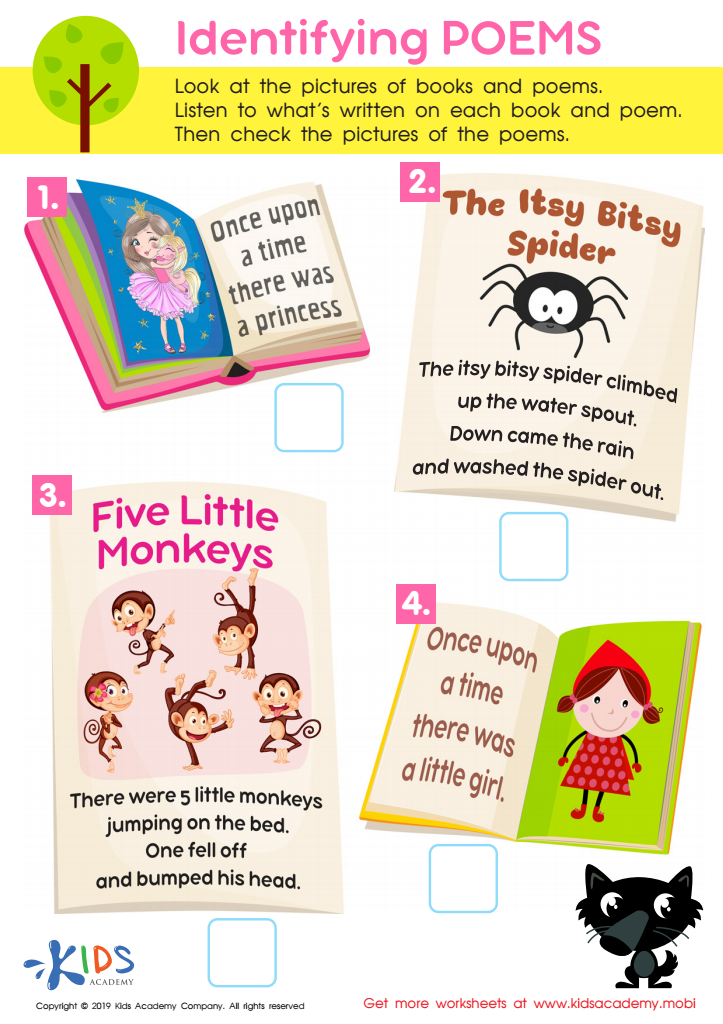

Identifying Poems Worksheet
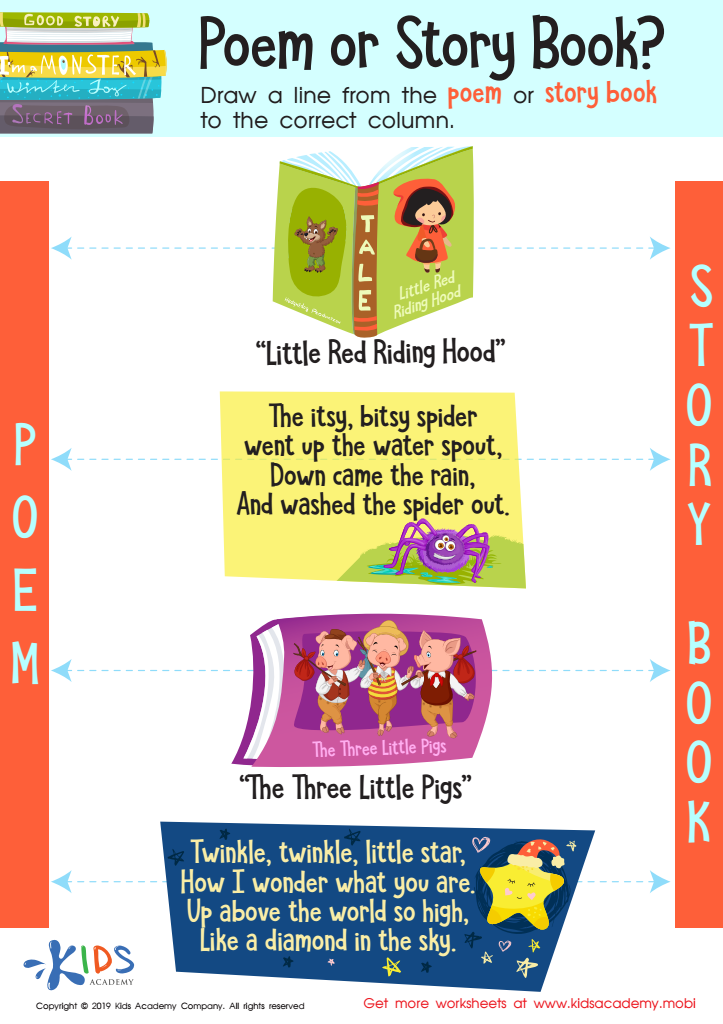

Poem or Story Book? Worksheet
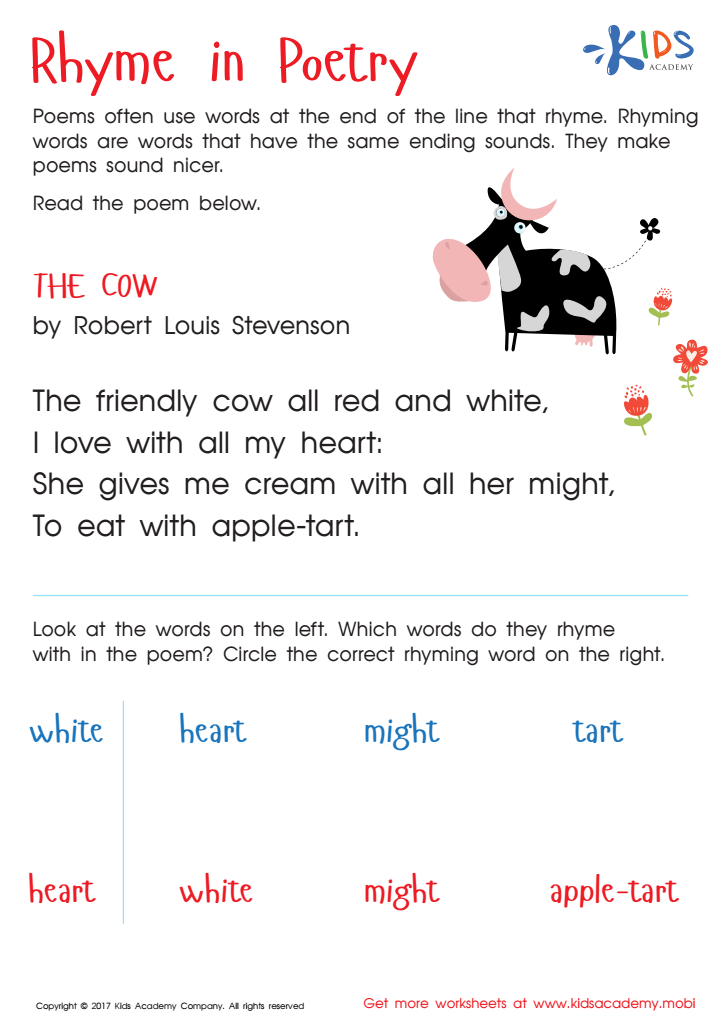

Rhyme In Poetry Worksheet
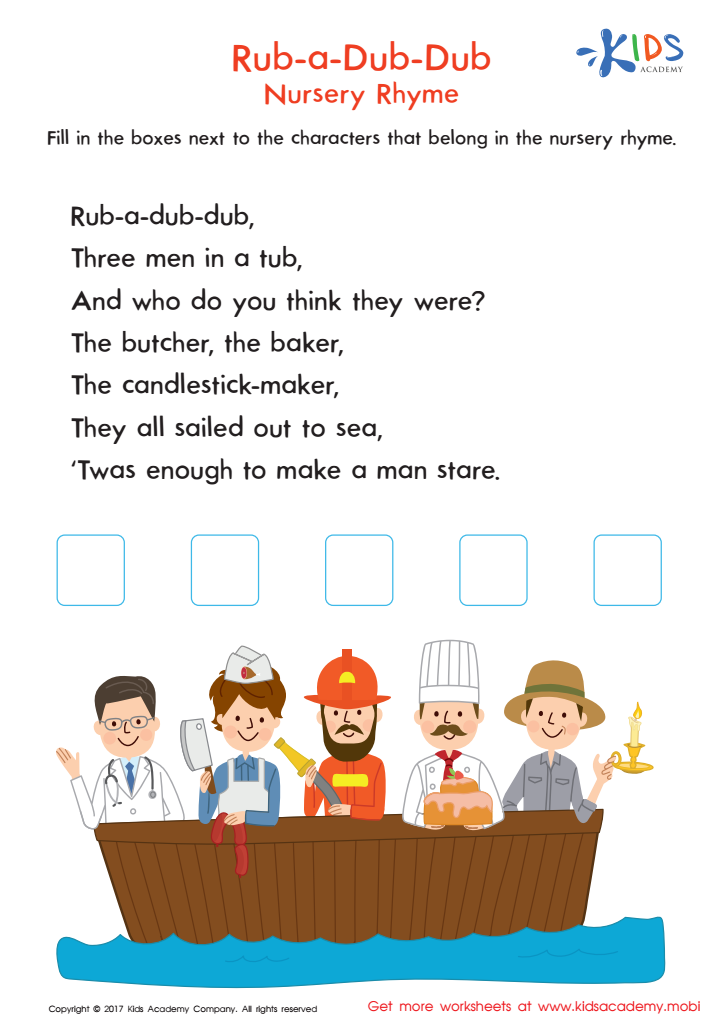

Rub a Dub Dub Printable
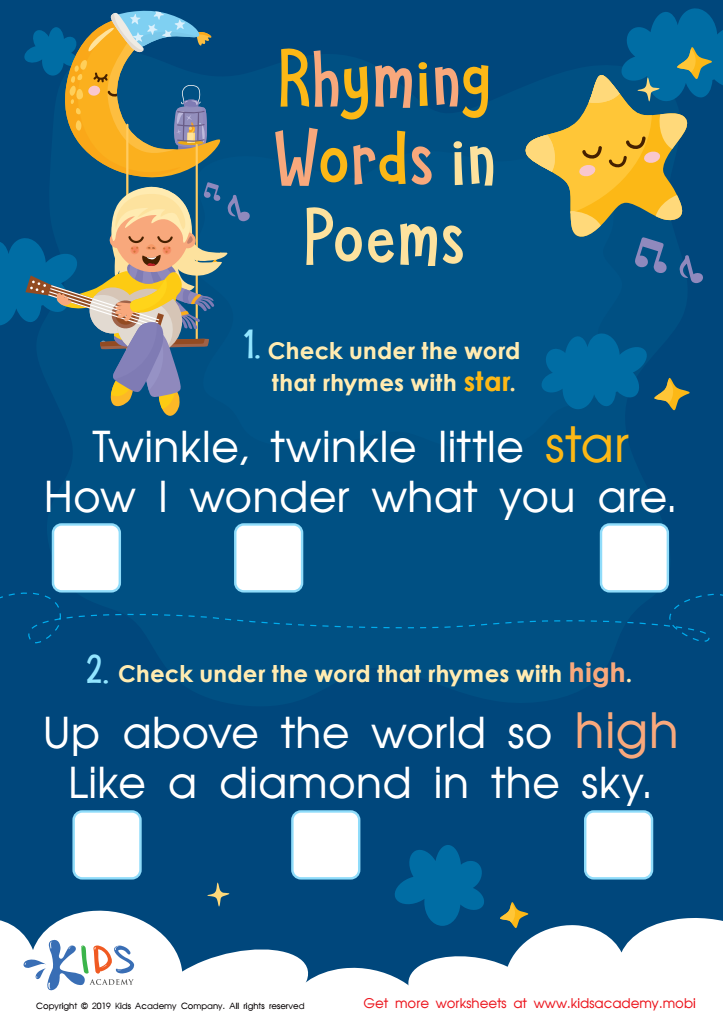

Rhyming Words in Poems Worksheet
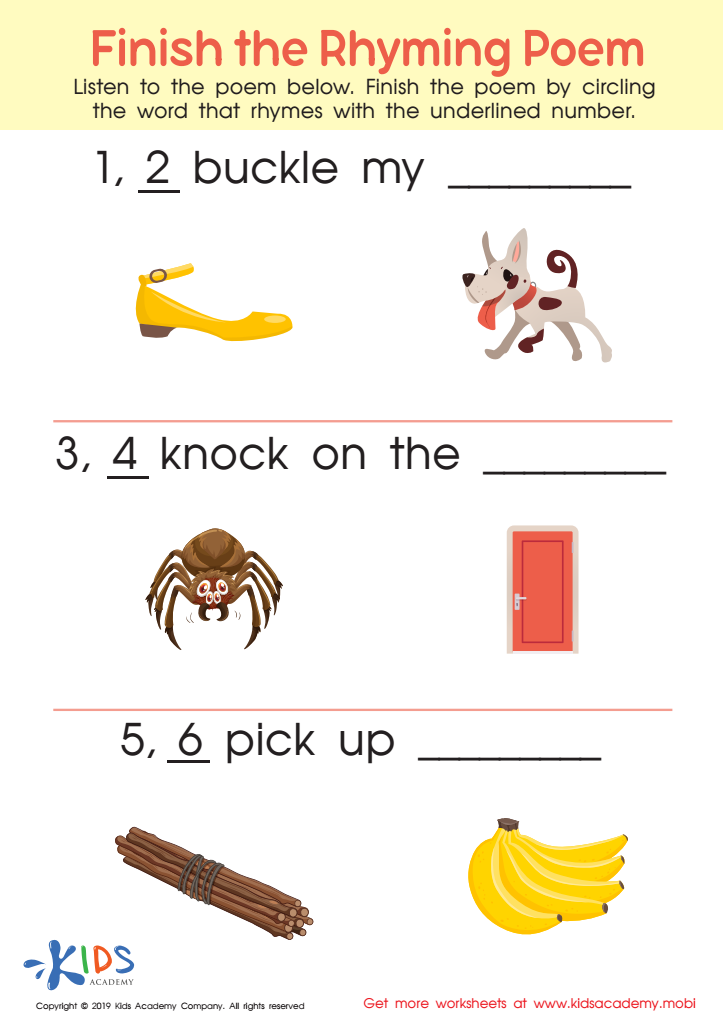

Finish Rhyming Poem Worksheet
Poetry activities for children ages 4-7 are beneficial for several compelling reasons. First and foremost, they support language development. Young learners expand their vocabulary and enhance their understanding of rhythm, rhyme, and sound patterns through playful, engaging language. This foundational skill is crucial for improving reading and writing abilities later on.
Moreover, poetry fosters creativity and imagination. Through exposure to different themes and styles, children learn to express their thoughts and feelings, cultivating emotional intelligence and self-expression. Additionally, poems often touch on various subjects, which can act as springboards for discussions, helping children develop critical thinking and comprehension skills.
Socially, shared poetry activities can strengthen bonds between peers, siblings, or parent-child pairs. Reciting and creating poems together nurtures collaboration and communication.
Lastly, introducing poetry contributes to early literacy and a lifelong love for reading and writing. Happiness and enjoyment are at the core of poetic expression, making it a joyful activity rather than a chore. By investing time in poetry activities, parents and teachers not only support essential developmental skills but also create memorable, enriching experiences that can ignite a passion for language in young learners.
 Assign to My Students
Assign to My Students




.jpg)









